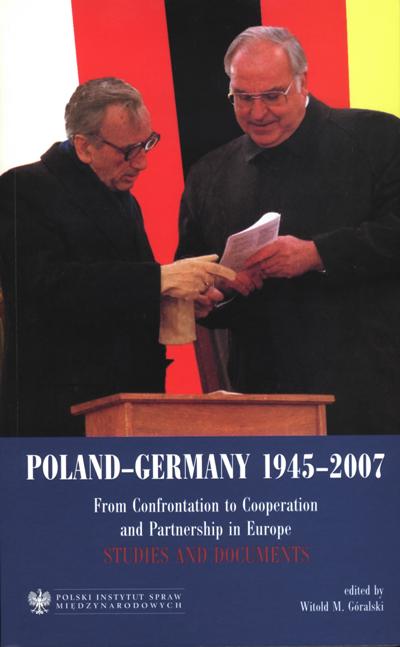Polish Raison d’État and The Process of Normalizing Relations with Germany in Conditions of Freedom and Democracy
Polish Raison d’État and The Process of Normalizing Relations with Germany in Conditions of Freedom and Democracy
Author(s): Anna Wolff-PowęskaSubject(s): Politics / Political Sciences
Published by: PISM Polski Instytut Spraw Międzynarodowych
Summary/Abstract: 1. The Circumstances of the Breakthrough in Relations with Germany 1.1. The Genesis of the Ideological Breakthrough in Relations with Germany 1.2. The Significance of the Second Vatican Council for Polish-German Reconciliation 2. The Rationale of Understanding and Reconciliation. The Years 1990–1998 2.1. Polish-German Rapprochement 2.2. Forming the Bases for Polish-German Understanding 2.3. Polish-German Reconciliation as the Basic Premise for Agreement 2.4. The Europeanization of the Polish Road to Understanding with Germany 2.5. The First Disturbances in Polish-German Understanding and the Reconciliation Dialogue 2.6. The Restoration of the Anti-German Opposition 3. Problems of Closeness with Reserve in Polish-German Relations in the Years 1998–2004 3.1. New Aspects of Polish-German Political Dialogue 3.2. The Offensive of the German Opposition 3.3. Growing Political Contradictions in Relations with Germany 3.4. Memory and History as a Renewed Source of Misunderstandings and Conflicts 4. Raison d’État Conflict or New Determinants of Polish Policy toward Germany 4.1. Negation of the Policy of Understanding, Cooperation, and Partnership in Relations with Germany 4.2. At the Crossroads in Search of a New Raison d’État 5. Thoughts about Polish Raison d’État with Regard to Germany Raison d’état is one of those concepts whose precise definition—given the evolution of the very idea and its practice in history—is unusually difficult. It manifests itself as a political spell embodying multiple functions: Rulers of old would use it on a day-to-day basis to formulate and justify norms and values; it could grant absolution to any power and, simultaneously, anoint it with responsibility. In the name of raison d’état, modern states could either limit or exalt power. Indeed, raison d’état is always ambivalent in character. “Raison d’état is the maxim of a state’s actions. It tells the statesman what he needs to do to maintain the health and strength of the state.”
Journal: PISM Series
- Issue Year: 2007
- Issue No: 3
- Page Range: 161-215
- Page Count: 55
- Language: English

